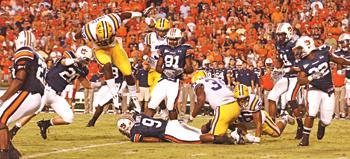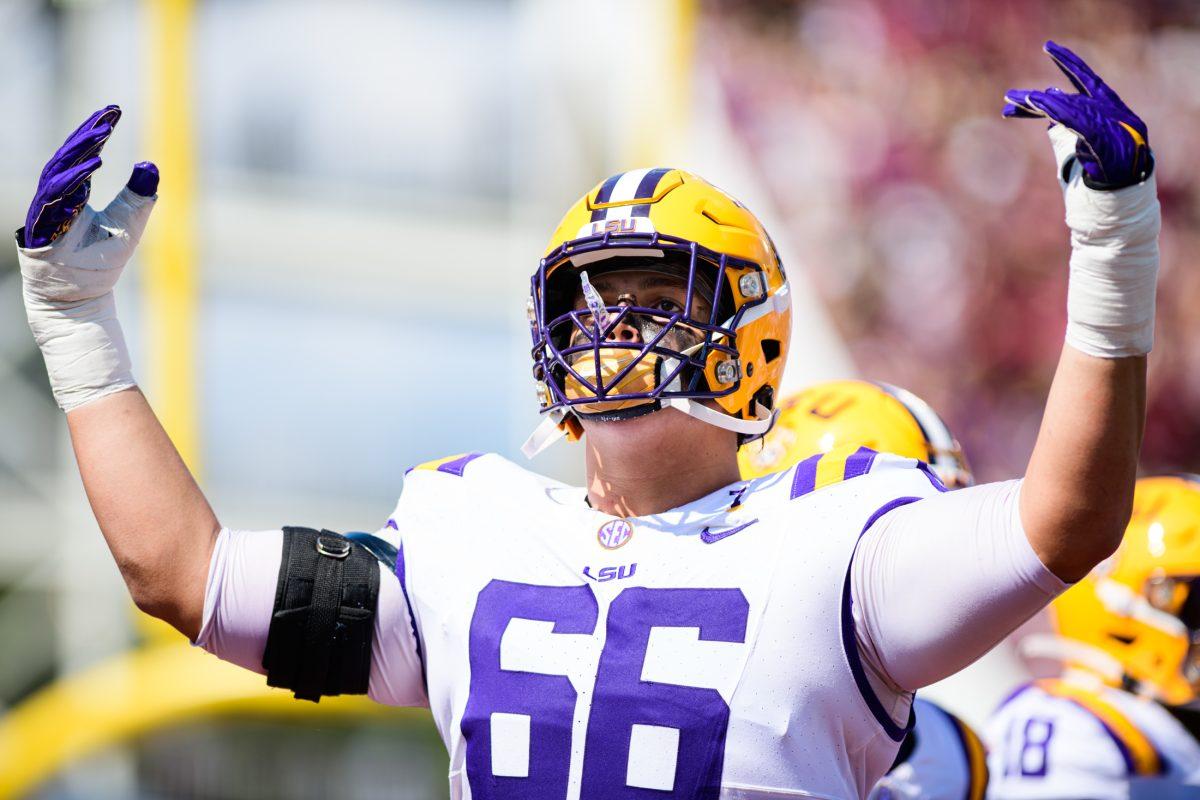LSU’s defense fell victim to several big plays last week, raising questions about how Auburn’s struggling spread offense cracked open the LSU secondary.Coach Les Miles said he aims to improve LSU’s defensive communication and specifically correct “errant coverage” in the secondary.”If we can eliminate some of those big throws, that defense would have had a spectacular day,” Miles said.LSU allowed 320 yards to Auburn; 250 coming through the air. Key gains for Auburn quarterback Chris Todd included a 58-yard pass to Tim Hawthorne, 30-yard throw to Rod Smith and a 29-yard completion to Robert Dunn.The big plays might raise heightened concerns because of Auburn’s struggling spread offense.Auburn ranks No. 73 nationally, and its 21.3 points per game ranks even worse at No. 87.”Instead of them having 320 yards, it could have been much less,” Miles said.A combination of factors may have been the cause for several breakdowns. First, safety Danny McCray returned to action for the first time since injuring his ankle against Appalachian State.”At one point in time, there were some cuts that were bothering me,” McCray said. LSU was also without senior linebacker Darry Beckwith, known for his vocal leadership crucial to coordinating defensive coverage.But players and Miles agree Auburn’s no-huddle spread offense — combined with the new 40-second clock — was the toughest obstacle to overcome Saturday night.Frequent substitutions caused LSU to hustle to bring in appropriate players.The result: what Miles called “trial by serious error” because of an “unbelievably difficult system.”Players explained that the only real solution would be for the officiating crew to stand over the ball to allow defensive adjustments.”It’s definitely a disadvantage for the defense, because the offense can sit there for that amount of time and scheme on you,” said sophomore linebacker Kelvin Sheppard. “There came a time in the game where they were subbing guys on pretty late, and the entire defense understands that the referee is supposed to stand over the ball until we get our guys in for that exact personnel.”McCray said communication “got a little rough out there” because of the confusion.”They were moving personnel in, and it was hard for our coaches to see if it was a receiver or a tight end coming in, so it can take us a little while to get the sign in,” he said. “By that time, we’ve got to run on the field and try to get the call in and try to get lined up. It’s all moving really fast, but we’ve got to get better at it.”McCray said the secondary unit has extensively reviewed tape on busted coverage and will work to correct the mental mistakes.”In the secondary, if you mess up, they’re going in for six [points],” McCray said. “You have to be sound in the secondary for every play.”Senior defensive end Tyson Jackson said all parts of the defense ended up “on different pages” because of Auburn’s scheme.”They were trying to use different personnel and confuse our sideline organization where we couldn’t get the right group in,” he said.Jackson was hesitant to place blame on the new 40-second clock. Instead, he said LSU must speed up its sideline communications.”It doesn’t matter if it’s a 40-second clock or a five-second clock,” he said. “You’ve got to catch up to it and got to move as fast as the game is moving.”But Sheppard said he hopes the officiating crew will be stricter in enforcing the rules.”It was very unfair for them to let them keep running guys onto the field like that,” Sheppard said. “If they’re letting them get their guys in, we need to be allowed to get our guys in too.”—-Contact Amy Brittain at abrittain@lsureveille.com
Defense works to correct communication issues
September 23, 2008







